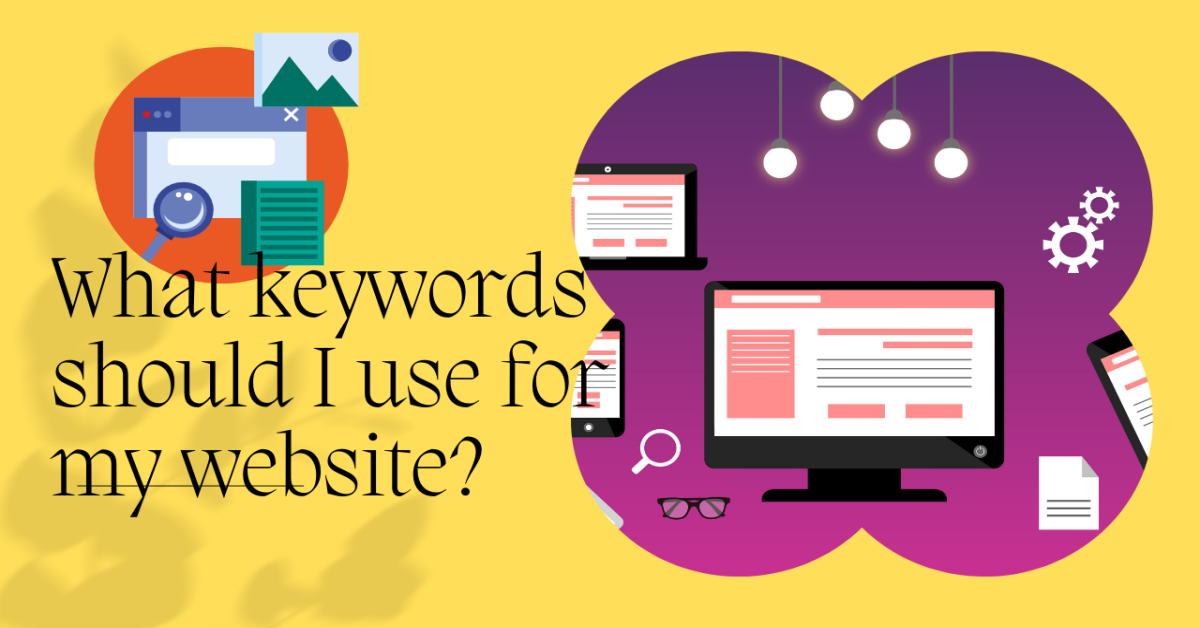Keywords are an essential factor in the organic ranking of a website in search engines. We can easily insert keywords into the content of a webpage, but also as meta tags and file names. These tags help search engine crawlers understand what your site is about so they can send traffic to your site accordingly. The best way to see which keywords work for you is by using analytical tools such as Google Adwords and Analytics. You can also use search engine optimizers such as SEMRush, which will help you target your keywords and find the best way to insert them into your website.
Many people wonder why they should use keywords on their websites. The reason is simple it will result in higher organic traffic, which will result in more visitors and sales for your website. It’s an old saying that today’s online marketers commonly use, but it remains accurate.
Using keywords in your website increases how easy it is for other people to find your site through search engines like Google. You want to be seen. Your webpage should describe what your products or services are about, and when the search engines read those keywords, they will understand the content of your page. The best way to target keywords is by comparing the difference between long-tail and short-tail.
Long Tail Keywords vs. Short Tail Keywords
Long tail keywords get you more traffic because they are targeted. They are targeted because they are as specific as possible so that people can find your page easily. On the other hand, short-tail keywords will get you less traffic because it needs to be more general. And there is a huge possibility that other pages have the same short tail keyword but with different content. You want to focus on long tail keywords and make them as specific as possible by adding in your target keyword or products/services that you offer.
Here are the benefits of using long-tail keywords:
- The search engines will use them on your page as a natural part of your content. These are called inbound links.
- It will also help you reach out to more people, attracting better-targeted traffic to your website and increasing your reach and exposure.
- It will also increase the chances for your visitors to convert because they are more likely to find what they are looking for.
- Search engines like google and Bing will understand what your page is about with keywords already inserted in the content so that you can rank higher on their search engine pages.
- It also gives you more chances of being found and indexed by search engines, giving you more exposure and traffic over time.
- Long tail keywords are specific and will help you compete and outrank other websites with the same keyword because you have more descriptive content.
Finding the perfect long-tail keyword for your website might be challenging, but many tools like SEMRush can help you find them easily. SEMRush is an excellent tool if you want to know how your competition is doing, see what keywords they are using, where they rank in the search engines, and much more. You can use this tool to complement your current marketing strategy. For example, if you just started a business and you are trying to figure out how to advertise or which keywords to use, you can add them as keywords in SEMRush and see what kind of traffic they bring along.
Search engines rank websites on how frequently they appear in search results. The more targeted your keyword is, the more probable it will appear in the top rankings. If a person searches for “cool pencils,” you want your website to appear in search results.
So what are the best keywords to use?
The short answer is it depends. How competitive is your niche, and how much traffic do you want? You can’t use the same keyword and expect top SEO rankings every time. There are so many different ways to use them:

- Long tail keywords – These are the ones with less competition because fewer websites use them. You can use these to drive traffic to your page. They will get you more targeted visitors, but they are not very competitive in terms of the number of websites that use them. You can use these keywords in your page’s content, file names, meta titles, headings, and subheadings.
- Brand name keywords – Use these to rank well for a specific brand name. For example, if you are selling red shoes and want to rank well for red shoes, then you can use it as a keyword in your page’s content, Meta title, and headings.
- Negative keywords – These are the keywords that searchers don’t search for. For example, if people don’t search for where to buy Red Shoes, then using “where to buy Red Shoes” will be useless because your page will not rank high in search engines.
- Action keywords – These are the keywords that searchers type in when they want to act, such as “buy,” “sell,” “download,” and “watch.” If you are selling a product, you can use these words in your page’s content, Meta title, and headings.
- Trivia keywords – These include questions and answers that people search for. These terms do not rank well in search engines, but they get a lot of traffic because they are excellent lead-generation tools. For example, if you are selling a live answering service and people are searching for “How do you block your phone number?” then you can use that as a keyword for your page.
Faqs
Q. What is the difference between keywords and key phrases?
A. A Keyword describe your page’s content, whereas we use key phrases for the page title and Meta tags, which are the metadata of a webpage.
Q. How many keywords should I use for my website?
A. The best way to do this is to use the rule of 3. It means that you should have a maximum of 3 keywords for any page, which must be targeted so that people can find what they are looking for on your page.
Q. How many website pages should I target with keywords?
A. You can only use one keyword per page. If you have different pages for different products, you should use more than one keyword, but the third keyword should be a long-tail keyword to avoid confusion.
Conclusion
Keyword research is a significant part of SEO. It gives you an idea of what people are searching for, and in the long run, you will be able to reach out to more customers if you use the right keywords. There are different types of keywords, but when it comes to ranking well in search engines, long tail keywords are the best way to go because they will give you more targeted visitors and help you outrank your competition.
When you have reached this far, I hope you have noticed that there is much more to SEO than just keywords. Keywords are the foundation of SEO, but there are other essential things regarding ranking well in search engines.

